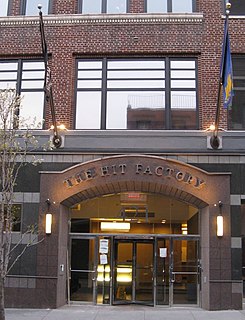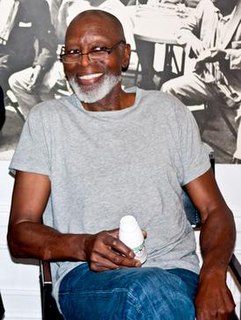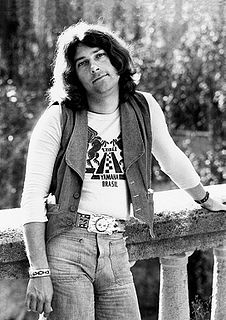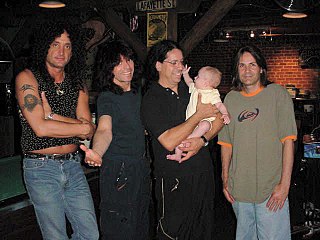
Quiet Riot is an American heavy metal band. The band was founded in 1973, by guitarist Randy Rhoads and bassist Kelly Garni under the name Mach 1. They then changed the name to Little Women, before settling on Quiet Riot in May 1975. The band's name was inspired by a conversation with Rick Parfitt of the British band Status Quo, who expressed desire to name a band "Quite Right", and his thick English accent made it sound like he was saying "Quiet Riot". The band is ranked at No. 100 on VH1's 100 Greatest Artists of Hard Rock.

The seven dirty words are seven English-language words that American comedian George Carlin first listed in 1972 in his monologue "Seven Words You Can Never Say on Television". The words are: shit, piss, fuck, cunt, cocksucker, motherfucker, and tits.
Smooth jazz is music that evolved from a blend of jazz fusion and easy listening pop music, featuring a polished pop feel with little to no jazz improvisation. The genre arose in the mid-1970s in the United States, although it was not named "smooth jazz" until the 1980s. Traditional jazz players and jazz purists did not embrace the popular style: Jazz Journal's "Sound Investment" column stated in November 1999 that it "would cover an extremely wide spectrum of jazz styles" while avoiding smooth jazz.
Pyro comes from the Greek word πῦρ (pyr), meaning fire.

George Andrew Cables is an American jazz pianist and composer.

QR is the sixth studio album released on October 21, 1988 by the American heavy metal band Quiet Riot. The album featured a major line-up change. Singer and founding member Kevin Dubrow had been fired before the recording sessions began, and replaced by Rough Cutt vocalist Paul Shortino. The band had fired DuBrow mainly because of comments he was making to the metal press about Quiet Riot's supposed superiority over other bands, which strained friendships that members of Quiet Riot had with those bands. Shortino's hiring was not the only line-up change, as Chuck Wright had quit the band and was replaced by Sean McNabb. This left the album with the distinction of being the only Quiet Riot release without DuBrow on vocals, or any other original members.

Ron McClure is a jazz bassist.
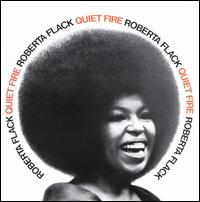
Quiet Fire is the third studio album by American singer-songwriter Roberta Flack, released in November 1971 by Atlantic Records. It was recorded at Atlantic Recording Studios, Regent Studios, and The Hit Factory in New York City. The album peaked at number 18 on the Billboard Top LPs & Tape, and its single "Will You Still Love Me Tomorrow" charted at number 76 on the Hot 100.

High Energy is an album recorded in 1974 by jazz trumpeter Freddie Hubbard. It was first studio album released on the Columbia label and features performances by Hubbard, Joe Sample, George Cables, Junior Cook, Ernie Watts, Pete Christlieb and Ian Underwood.
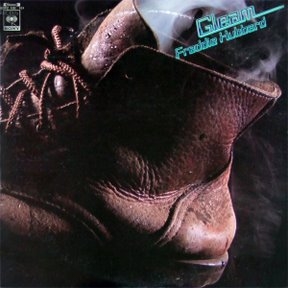
Gleam is a live album recorded in 1975 by jazz trumpeter Freddie Hubbard. It was released as a double LP on Sony Music Japan and features a live performance recorded in Tokyo by Hubbard, Carl Randall, George Cables, Henry Franklin, Carl Burnett and Buck Clark. The selections are extended performances of material from Hubbard's recent albums "High Energy" and "Polar AC"; as well as three songs from the upcoming and as of then unrecorded album "Liquid Love". In 2012 the album was released as a double cd on the Wounded Bird label.
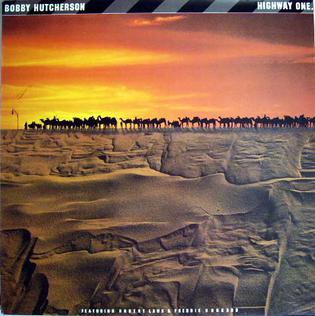
Highway One is an album by American jazz vibraphonist Bobby Hutcherson recorded in 1978 and released on the Columbia label. The album was Hutcherson's first for Columbia after a long association with Blue Note Records.
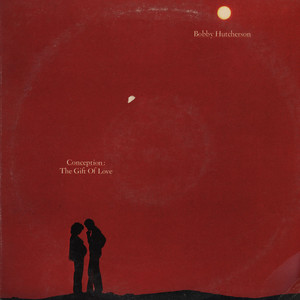
Conception: The Gift of Love is an album by American jazz vibraphonist Bobby Hutcherson recorded in 1979 and released on the Columbia label.

Why Not is the debut album by jazz pianist George Cables, released in 1975 on Why Not Records.

Cables' Vision is a studio album by jazz pianist George Cables, released in 1980 by Contemporary Records and featuring trumpeter Freddie Hubbard.
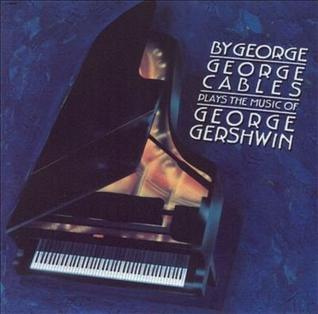
By George is an album of George Gershwin tunes by pianist George Cables recorded in 1987 and released on the Contemporary label. The album was Cable's third for the label and released in commemoration of the fiftieth anniversary of Gershwin's death.

Blue Lou is an album led by drummer Louis Hayes which was recorded in 1993 and released on the Danish SteepleChase label.

Quiet Fire is an album by pianist George Cables recorded in 1994 and released on the Danish label, SteepleChase.

Thank You Thank You is an album by drummer Roy Haynes which was recorded in 1977 and released on the Galaxy label.

Quiet Fire is a live album by saxophonists Frank Morgan and Bud Shank which was recorded in Seattle in 1987 but not released on the Contemporary label until 1991.

Morning Song is a live album by pianist George Cables recorded at Keystone Korner in 1980 and released on the HighNote label in 2008.



